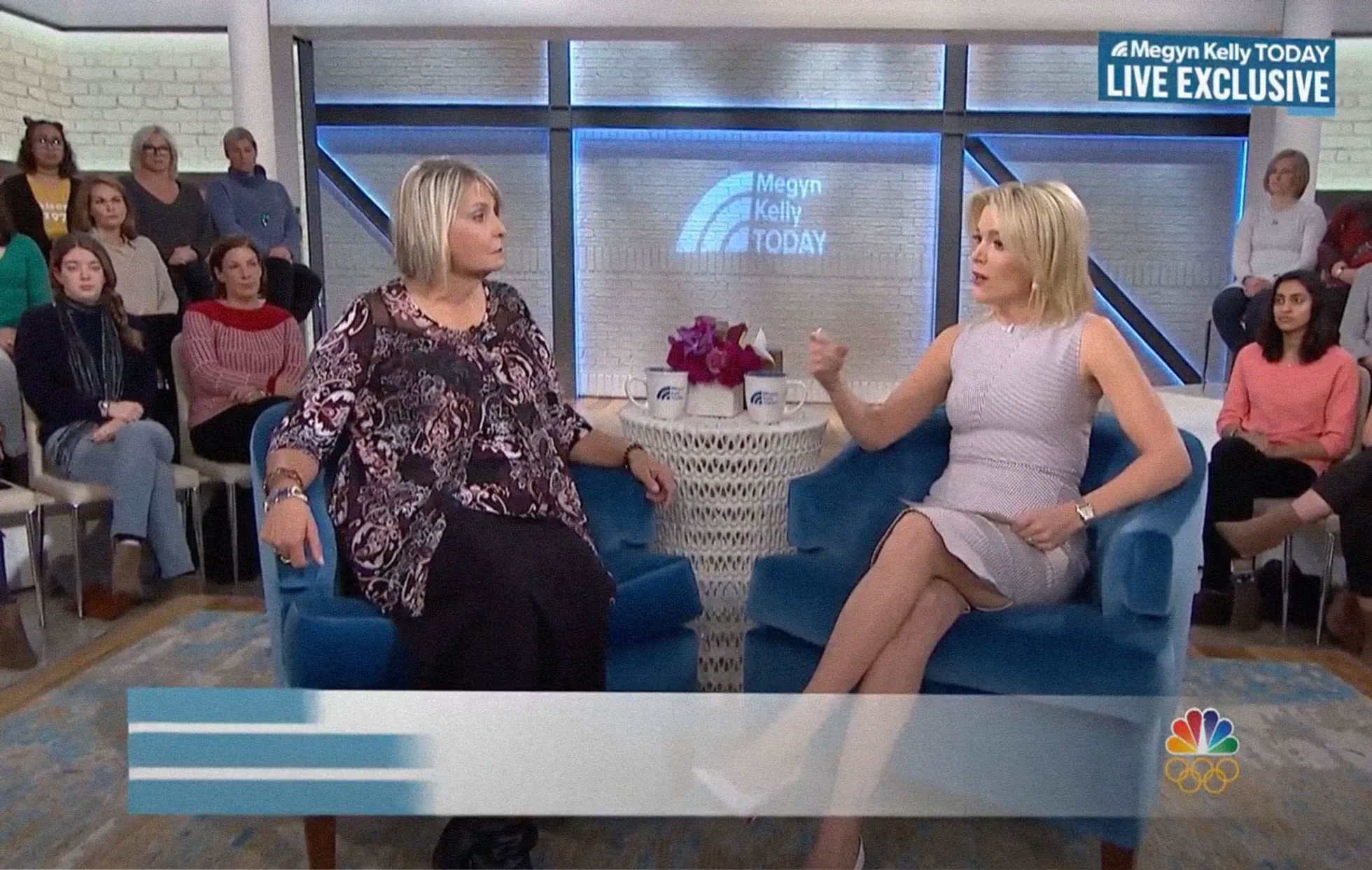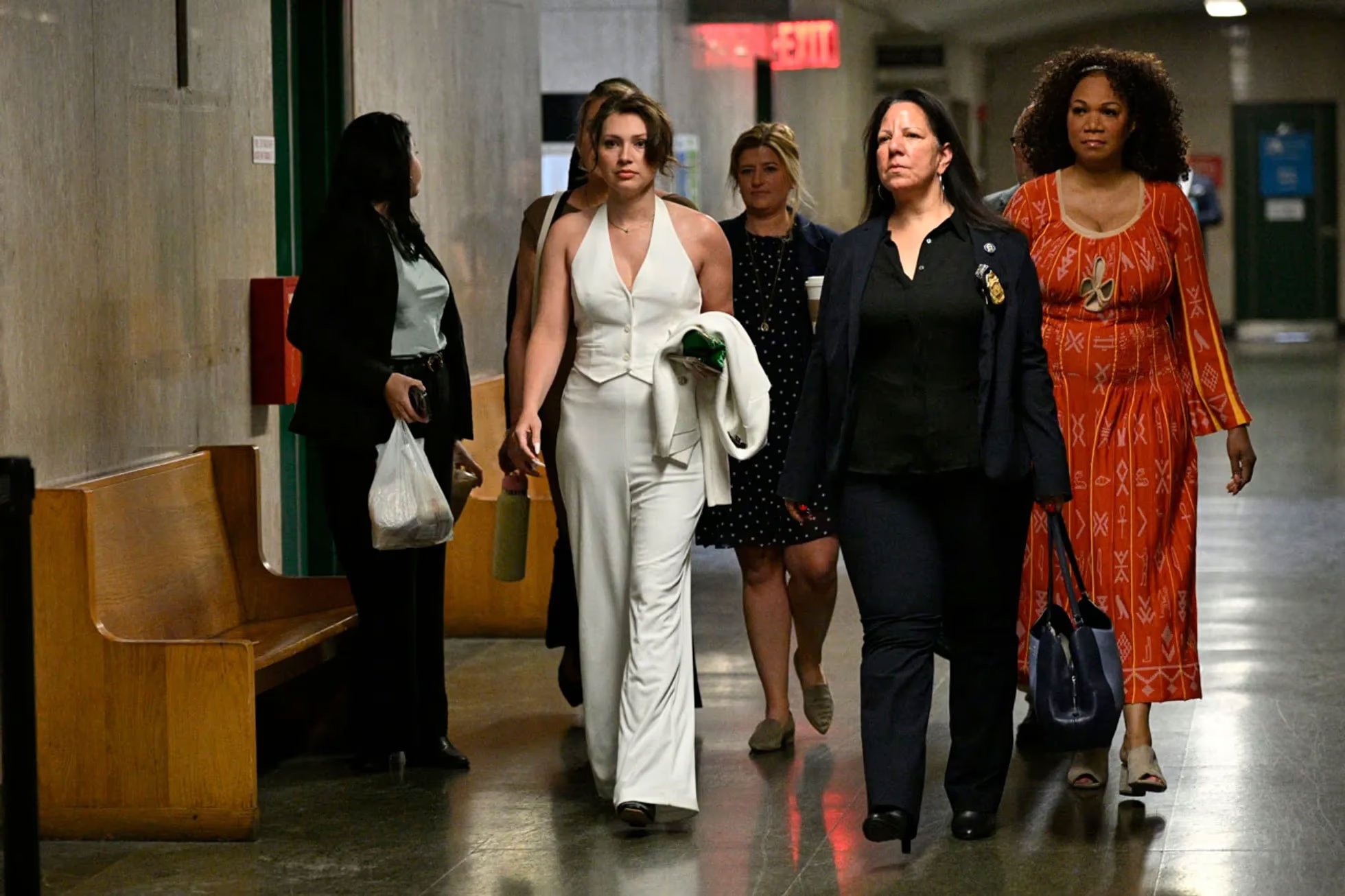In 2017, when the investigations into Harvey Weinstein triggered the #MeToo wave, it seemed that the issue of sexualized violence would finally take a firm place in public discourse. Women across the country began to speak out — and society promised to listen. Politicians, corporations, and the media spoke of change, and the movement was seen as a turning point.
More than eight years later, some of those who were among the first to speak out recall that choice with bitterness. Support has vanished, replaced by lawsuits, harassment, financial hardship, and indifference — not just institutional, but human.
The New Yorker tells the story of Tina Johnson from Alabama — one of the women who publicly accused influential lawyer and politician Roy Moore. At the time, national media invited her on air, and her voice sounded strong. Today, she doesn’t know how to pay for a lawyer — and isn’t sure whether speaking out was worth it at all.
A Childhood Without Protection
Tina Johnson grew up in Alabama in the 1960s. Her mother, Catherine, couldn’t read or write, but she knew how to make a living: she painted houses, fixed wiring, and drove trucks. Catherine was married five times. Tina was her fourth child. Neither she nor her siblings played sports or took extracurriculars — there simply wasn’t enough money. "I don’t want to say this, but I will — we were like Black folks. We didn’t have the opportunities white people had," Tina says.
She was a pretty girl with blond hair and blue-green eyes. When she was about four, her uncle William started molesting her. Later it was Claude, her mother’s son-in-law. Eventually, Tina learned that William had abused her sister too, and Claude had done the same to a niece. At the time, talking about abuse was taboo, so Tina never told her mother. At age 12, she instinctively hit Claude on the head with a skillet — he had come up behind her and put his hands on her crotch while she was doing the dishes. She thought she’d be punished, but Claude lied and said he’d hit his head accidentally. That was the first time Tina realized what was happening was abuse. He never touched her again.
At 16, she became pregnant by her first boyfriend and gave birth to a son. She later married several times and had two daughters. After divorcing her second husband, she avoided new relationships — afraid that any man might harm her children. It was during those years, watching her daughters grow up, that Tina finally understood: she hadn’t invited the abuse. She had been a child.
The Visit to the Attorney
Tina's mother had helped raise her eldest son, Daniel. Sometimes he even lived with his grandmother. In 1991, Catherine decided to establish legal guardianship over him. They went together to the office of notorious attorney Roy Moore to settle the formalities. Moore paid Tina compliments and invited her out for a drink. She declined: she disliked his gaze and his questions—about her daughters' ages and whether they had inherited her eyes. As she and her mother were heading toward the door, he grabbed Tina's buttocks. "I didn't even turn around. I just kept walking," she recalls. She remembered nothing else from that encounter.
Breaking the Silence
In 2017, amid the #MeToo movement, Tina saw Moore on television. He was now Chief Justice of the Alabama Supreme Court and running for the Senate as a Republican. He was leading in the polls. Then Leigh Corfman, an employee at a microloan center, accused him of harassment. She alleged that in 1979, when she was 14 and he was 32, he met her near a courthouse and twice took her to his home, where sexual contact occurred. As an adult, she understood this had been unacceptable. She had previously remained silent, fearing for her young children. Now they were grown—and she decided to speak out.

Roy Moore Announces His Candidacy for the U.S. Senate. 2019.
She faced a fierce backlash. Some branded her a liar. Others claimed that 14-year-olds were already marrying at the time. Tina resolved to support Leigh and went public with her own story. Her account reached national news outlets. Tina appeared on Megyn Kelly's show. Then other women came forward. Beverly Young Nelson alleged that Moore attempted to force her into oral sex in his car when she was 16 and he served as an assistant district attorney. Debbie Wesson Gibson reported dating and kissing him at age 17. Wendy Miller stated Moore asked her out when she was 16, but her mother forbade it.

Tina Johnson during an interview on Megyn Kelly Today. November 2017.
Moore denied the allegations, stating he didn't know Leigh Corfman, had never dated minors, and had never harassed anyone. Yet he lost the election. Leigh received global support, forged bonds with fellow accusers, and was featured in Time magazine's article on "The Silence Breakers." They were collectively named "Person of the Year" in 2017. "I was scared to death at first. But as things unfolded, I grew confident in what I was doing," Leigh recalls.
Fire and Litigation
The Democratic victory in Alabama proved seismic: they hadn't won a Senate race there in a quarter-century. The women who confronted Moore felt justice had prevailed. But on the day the new senator was sworn in, Tina's home in Gadsden burned to the ground. The previous night, she'd awakened three times—disturbed by a neighbor's barking dog. The fire left Tina and her husband Morris homeless, still burdened by an outstanding mortgage. Debts remained. Authorities detained a suspect but soon released him. The investigation concluded the blaze could have been either arson or a malfunctioning heater.

Tina Johnson’s House After the Fire. 2018.
"I was numb. I hadn’t eaten for weeks," Tina says. She stopped attending church—feeling as if a wall had been built around her by those around. Other women faced consequences as well. Beverly Young Nelson admitted she had added the date and place to the note signed "Love, Roy Moore," which she presented as evidence. She was accused of lying. Her children received threats. Lee Corfman also faced threats and began carrying a pistol. In 2019, she was involved in a car accident: according to her, a pickup truck crossed into her lane and headed straight toward her. She believes it was an assassination attempt. The police found no evidence.
After the accident, Lee was unable to work and lived on food stamps. She lost a defamation lawsuit against Moore, which she had filed in 2018. This was a heavy blow. Her health deteriorated, and by her own account, she became reclusive.
Tina and two other accusers of Moore are still involved in lawsuits against him—on his initiative. Tina hired a lawyer but doesn’t know how she will pay. She feels acquaintances and neighbors avoid her. "People avoid me like the plague. It hurts deeply," she sighs.
The Backlash
The #MeToo movement began in the United States in 2017—following investigative reports on producer Harvey Weinstein, who was accused of sexual misconduct by over 80 women. Later, similar accusations emerged against hundreds of powerful men. Women were also accused, but far less frequently.
Although Weinstein was sentenced to 23 years in prison, most cases never reached trial—either due to statutes of limitations or difficulties in proving the claims. A "cancel culture" emerged—people were boycotted, fired, or removed from positions even without formal charges. An example is actor Kevin Spacey: the allegations destroyed his career, despite never being proven in court.

Film Producer Harvey Weinstein in Court. 2018.

Stylist Jessica Mann at the Harvey Weinstein Trial. May 2025. In 2020, Weinstein was sentenced to 23 years in prison for raping Mann and coercing assistant Miriam Haley into oral sex. In a retrial, the jury again found him guilty of assaulting Haley. The verdict in Mann’s case has not yet been delivered.
The women who came forward faced retraumatization. They were accused of lying, ridiculed, threatened, and inundated with lawsuits. Actress Amber Heard, who accused Johnny Depp, lost her case and encountered widespread harassment. Professor Christine Blasey Ford, who testified against Supreme Court nominee Brett Kavanaugh, received threats and was forced to relocate her family to hotels. Attorney Alice Dorsey, who accused Professor Joshua Wright, paid him $300,000 to avoid even greater expenses from a $100 million defamation lawsuit. She had to take leave and undergo rehabilitation.
Ultimately, The New Yorker summarizes, the U.S. grew weary of #MeToo and "cancel culture." Conservative politicians and bloggers seized the moment. Podcaster Joe Rogan and activist Candace Owens voiced support for Harvey Weinstein. Meanwhile, Donald Trump—accused by more than 27 women and found guilty in one case—was re-elected President of the United States.
Rights That Still Need Defending

Violence Is Widespread, Trust Is Not
Most Surveyed Women in England and Wales Have Faced Harassment, but Only a Third Trust the Police

Support for Abortion Rights Is Declining Among Men
Women Have Become More Vocal Since the Repeal of Roe v. Wade

Trump Backed Withholding Epstein Case Files
His Supporters Called It a Betrayal and Demanded the Resignation of U.S. Attorney General Pam Bondi

Trump Revokes Emergency Abortion Protections in Hospitals. The Rule Had Required Doctors to Save Women With Life-Threatening Complications

The Oldest Law Fades Into History
England and Wales Decriminalize Abortion

